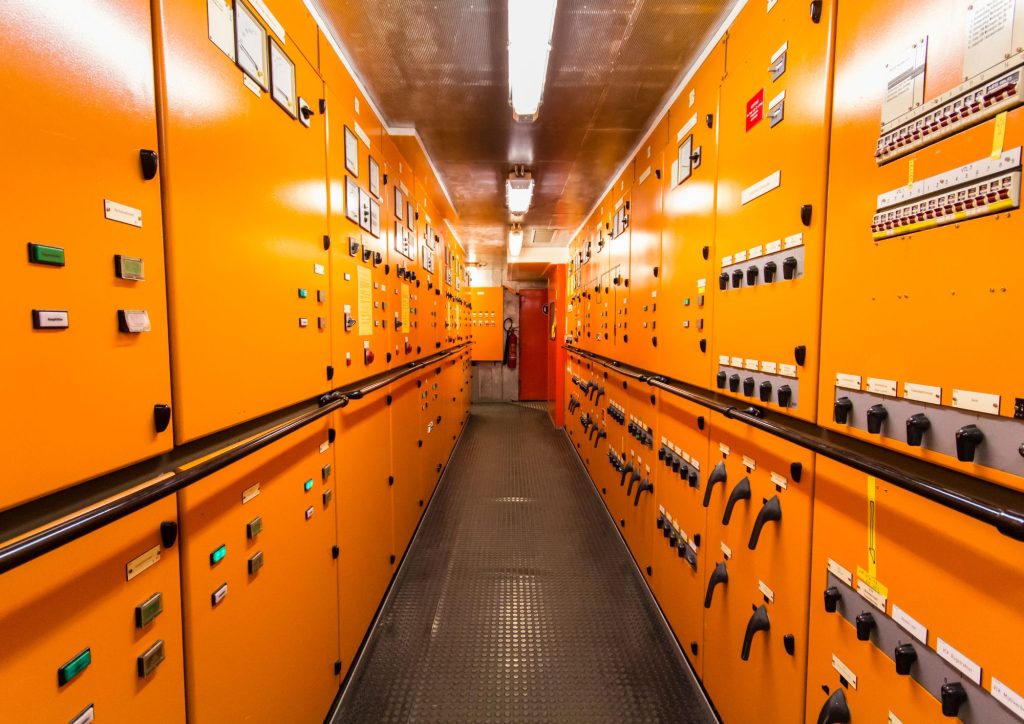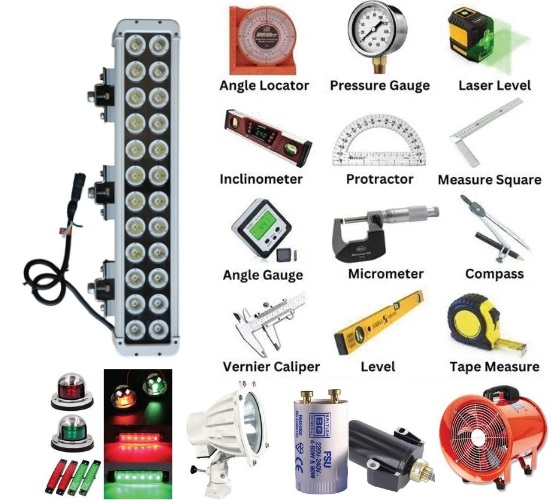
Electrical Equipment- Electrical equipment is fundamental to the operation, safety, and efficiency of ships, playing a critical role in various systems onboard. One of the primary uses of electrical equipment is to power the ship’s navigation and communication systems, including radar, GPS, and radio equipment, which are essential for safe and effective maritime operations. Lighting systems are another vital aspect, providing illumination for both internal spaces and external areas, thereby enhancing safety during night operations and in poor visibility conditions. Additionally, electrical equipment is used to operate essential machinery, such as pumps, motors, and generators, which facilitate functions like ballast control, fuel transfer, and sewage management. This equipment also supports the ship’s refrigeration and air conditioning systems, ensuring a comfortable environment for the crew and preserving perishable cargo. Electrical safety systems, including alarms, fire detection, and emergency lighting, are critical for protecting both the vessel and its occupants. Furthermore, modern ships increasingly rely on advanced automation and control systems, all powered by electrical equipment, to enhance operational efficiency and reduce human error. Overall, electrical equipment is indispensable for the safe and efficient functioning of ships, enabling a wide array of operations essential for maritime activities.
Lights & Fans – Lights and fans are critical components in ships, playing essential roles in safety, comfort, and operational efficiency. Lighting is vital for navigation, signaling, and ensuring visibility on board. Various types of lights, including deck lights, navigation lights, and emergency lights, help crew members safely perform their duties during both day and night. Proper lighting enhances visibility in working areas, reduces the risk of accidents, and facilitates the safe maneuvering of the vessel, especially in harbors and during docking operations. Additionally, navigation lights are crucial for indicating the ship’s position and course to other vessels, thereby preventing collisions at sea. Fans, on the other hand, are integral for ventilation and temperature control within the ship’s interior. They help circulate air in enclosed spaces, ensuring a comfortable environment for the crew and preventing the buildup of heat and humidity, particularly in engine rooms and living quarters. Adequate ventilation is essential for maintaining air quality and reducing the risk of overheating equipment. In addition to comfort and safety, lights and fans contribute to the ship’s overall functionality. By ensuring proper illumination and ventilation, these components play a vital role in enhancing operational efficiency, safety, and the well-being of all on board during voyages.

Measuring Tools – Measuring tools are essential for ensuring accuracy and precision in various operations aboard ships, significantly contributing to safety, efficiency, and compliance with maritime regulations. These tools include tape measures, calipers, levels, and gauges, which are used for a wide range of applications, from construction and maintenance to navigation and cargo handling. In shipbuilding and repairs, accurate measurements are crucial when cutting, fitting, and assembling metal sheets, pipes, and other structural components, ensuring that parts fit together correctly and maintain the vessel’s integrity. In navigation, measuring tools such as sextants and GPS devices are vital for determining the ship’s position and course, helping to avoid collisions and ensure safe passage. Additionally, tools like draft gauges measure the ship’s draft, ensuring it remains within safe limits while loading and unloading cargo, which is critical for stability and seaworthiness. Regular measurements are also necessary for monitoring equipment performance, such as checking the calibration of pressure and temperature gauges in the engine room. Overall, measuring tools provide the accuracy required for effective operation, maintenance, and safety management on ships, making them indispensable for the crew in their daily tasks and responsibilities.
